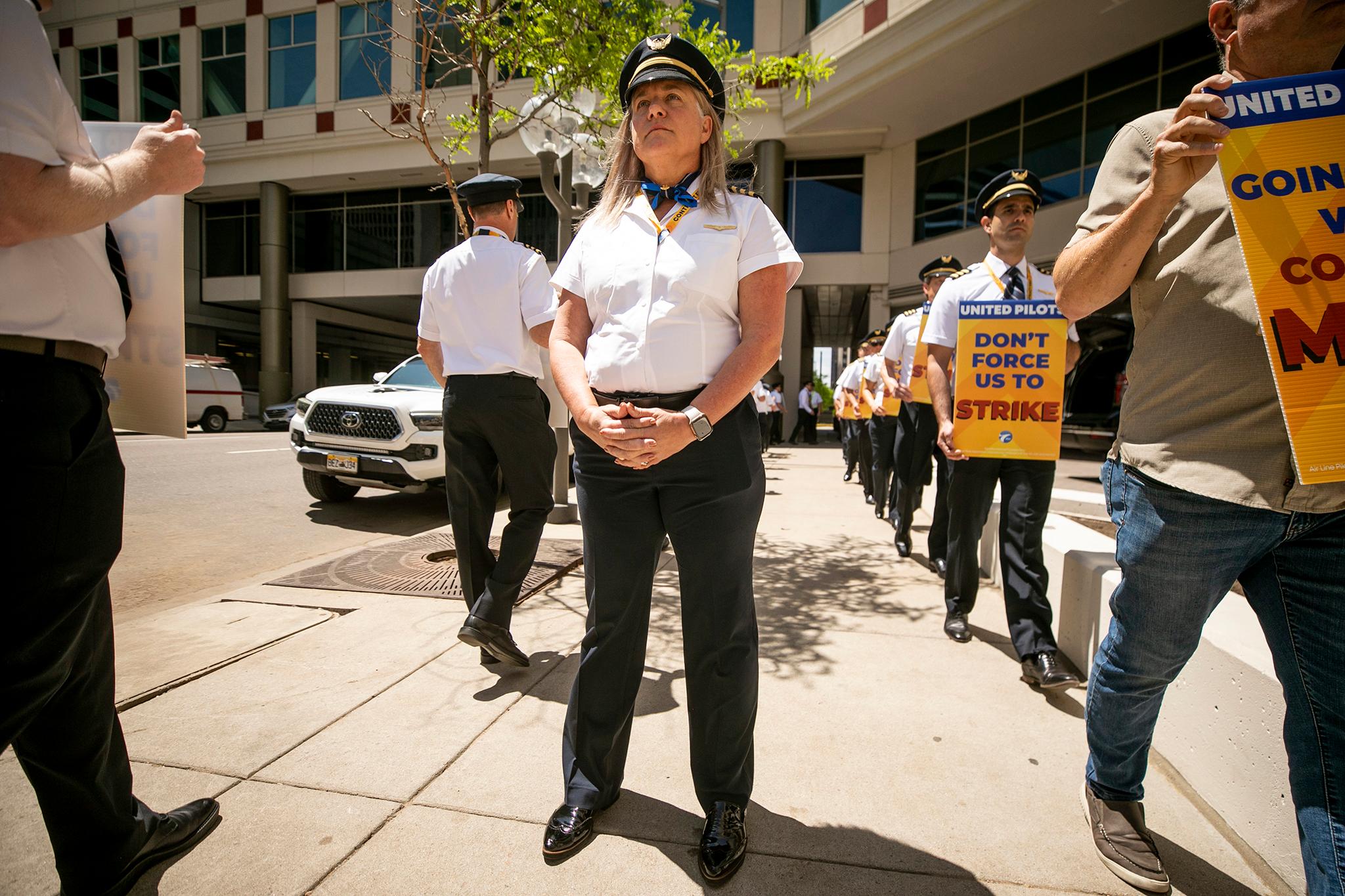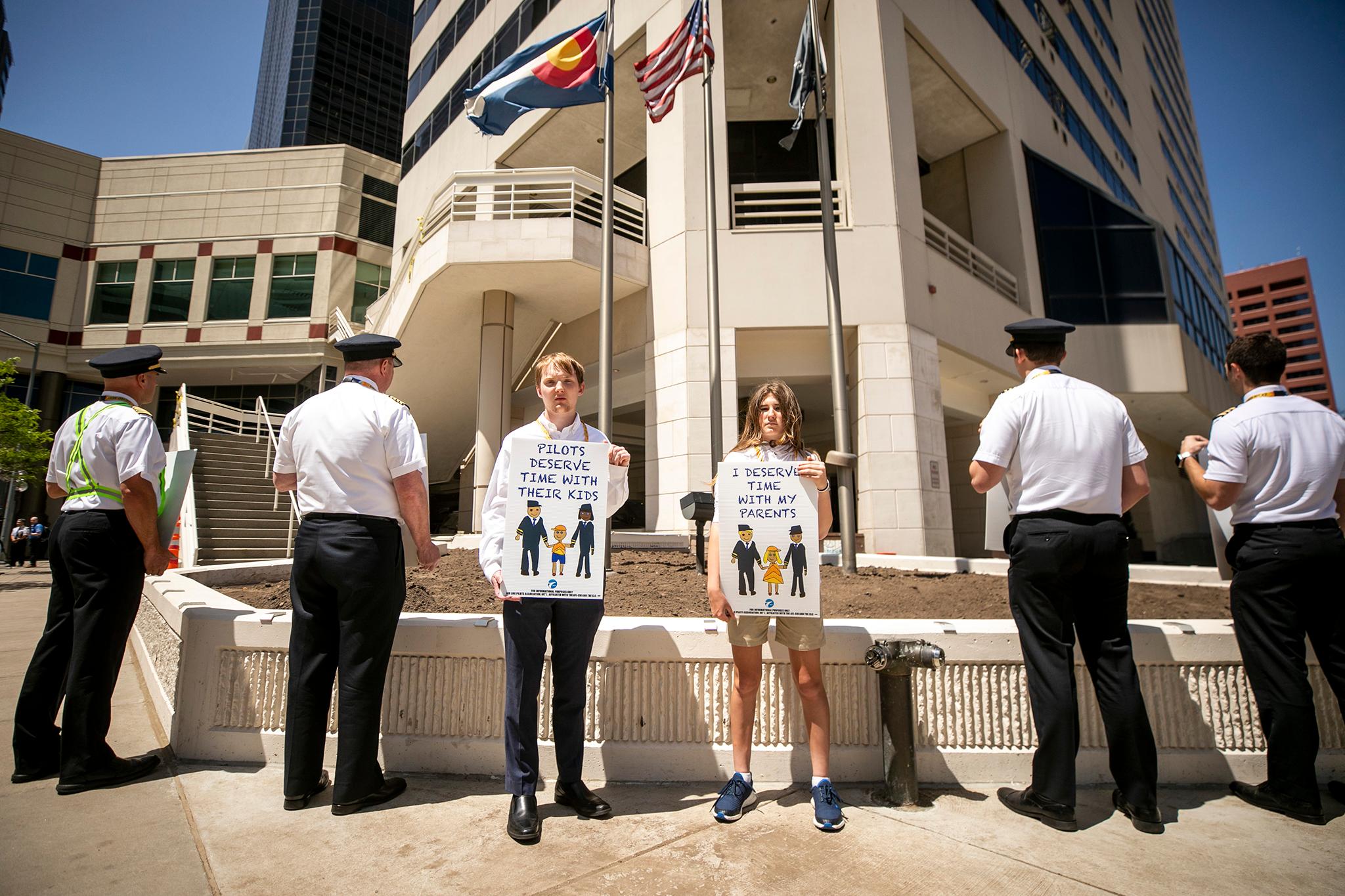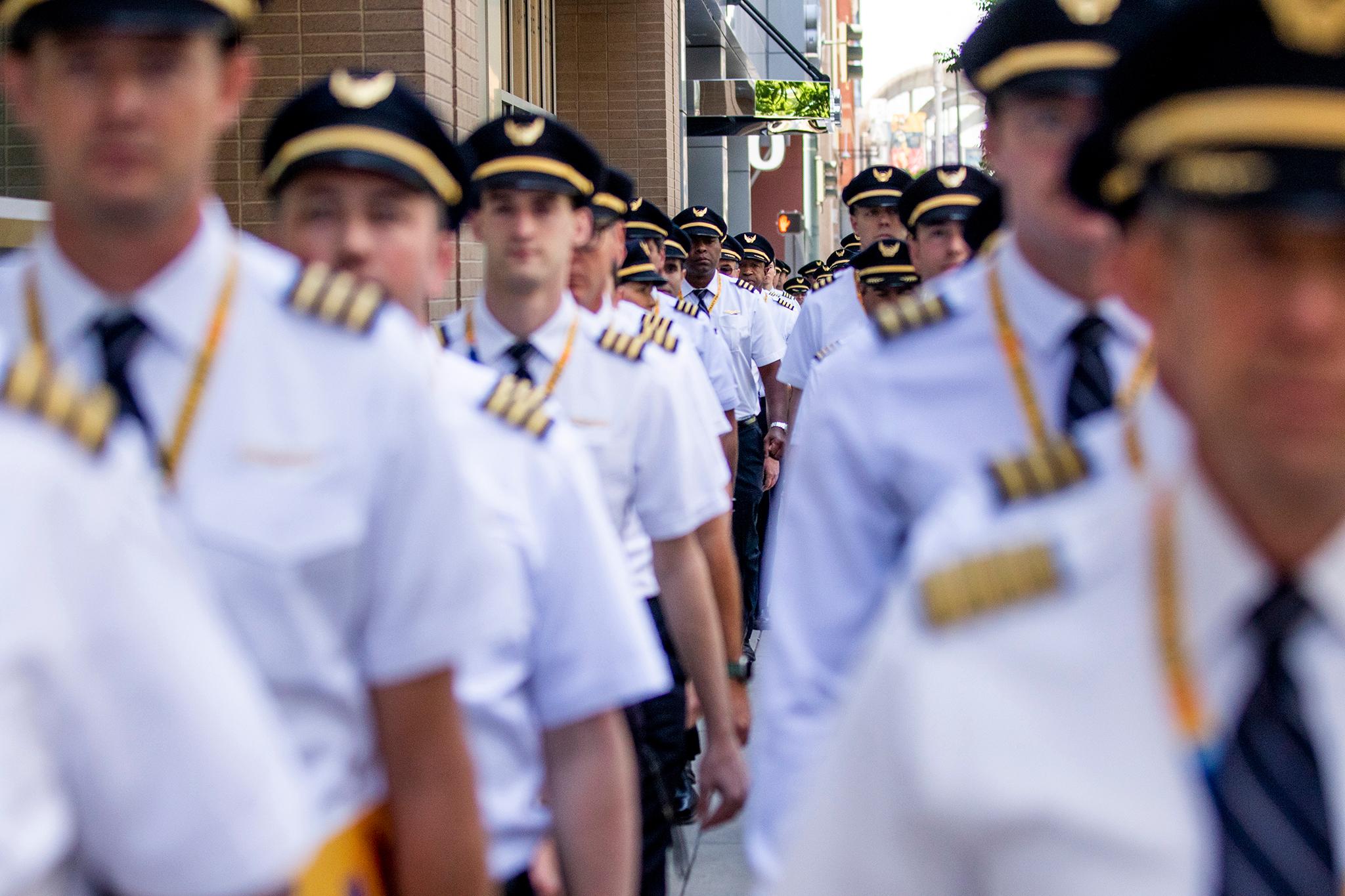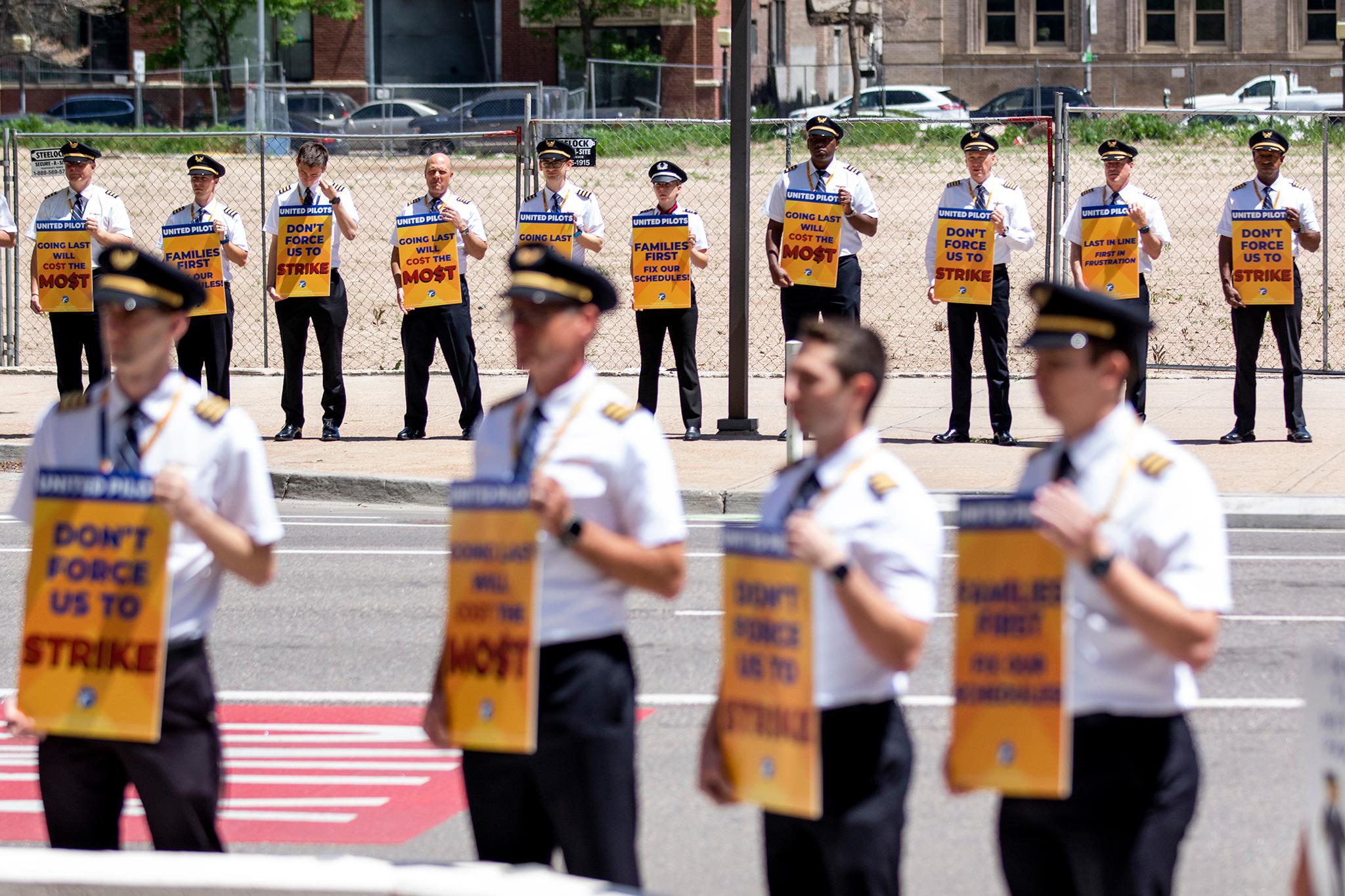In 2006, United Airlines pilot Quincy Fleming brought her two-year-old daughter in a stroller to a picket line in Chicago with a sign that read, "My nanny makes more than my mommy." Seventeen years later, Fleming is back at the picket line, this time in Denver, protesting alongside dozens of fellow pilots for better schedules and higher pay.
"This is about families," Fleming said. "I'm a middle-aged woman, I have school-aged children, I have aging parents. When I'm home, I really need to be home."

Contract negotiations began in 2019, and have stretched on for almost five years. In addition to higher pay, the pilots want to limit how much the airline can make them work on days off. Pilots across the industry have complained about lengthy time away from home and tighter schedules as the travel industry responds to high demand.
Fleming said she has missed plenty of Christmases and canceled plans last-minute. She knows working holidays comes with the job, but that she wants to be able to actually be home when she planned in advance to be home. Another pilot on the picket line, Tim Nelson, said that he could not be with his family when his father's wife died.
"We want our pilots to see their families more, their children more, quit missing birthdays, quit getting worked into days off," he said.

United pilots have been picketing across the country in recent weeks. On Thursday, they were outside the Ritz-Carlton downtown, where the United Airlines Board of Directors was meeting.
The picket comes just days after United CEO Scott Kirby announced a major expansion at the Denver International Airport, including 35 new flights, six new routes and 12 additional gates.
"I love my airline and I want it to grow, I'm very happy to hear that we're growing aggressively," Fleming said. "My concern is that we can't talk about growth, without talking about how we're going to manage the growth."
Fleming said she worries about a lack of internal promotion and growth among pilots at United.
At a press conference Tuesday, Kirby said he thinks a deal could come soon.
"Our pilots deserve the best contract within the airline industry, and that's what we have on the table," he said. "We're really close, the last yard sometimes on these kind of deals takes a little longer than you think to get there."
United spokesperson Russell Carlton made a similar statement Thursday. "We're continuing to work with the Air Line Pilots Association on the industry-leading deal we have put on the table for our world-class pilots," he said.
The pilots have a different perspective. "We continue to have slow to no progress," Fleming said.

Pilots for other airlines have also been picketing across the country as they negotiate new contracts.
American Airlines' pilots picketed for raises and quality of life improvements earlier this month, and both American and Southwest Airlines pilots voted to authorize strikes this past spring to put pressure on contract negotiations to reach the finish line. In March, Delta pilots secured a contract with 34% raises over the next few years, and last week, American Airlines reached a preliminary deal with their pilots (the terms of which are not yet public).
An actual strike from any airline is unlikely. U.S. labor laws make airline strikes difficult, requiring mediation and permission from the federal government.
"There are laws and rules that regulate when and what kind of work action we can take, but we will continue to move down that path as long as we don't have a contract," Fleming said.
In the meantime, she said any show of support from the public means a lot.
"You cannot discount the power of just a simple 'thank you,'" Fleming said. "We love our airline, we want them to come fly with us, but we do want them to be aware that we are working under expired rules, and any show of support or thanks, just as a simple hello, honk the horn, whatever it is, we appreciate it."













